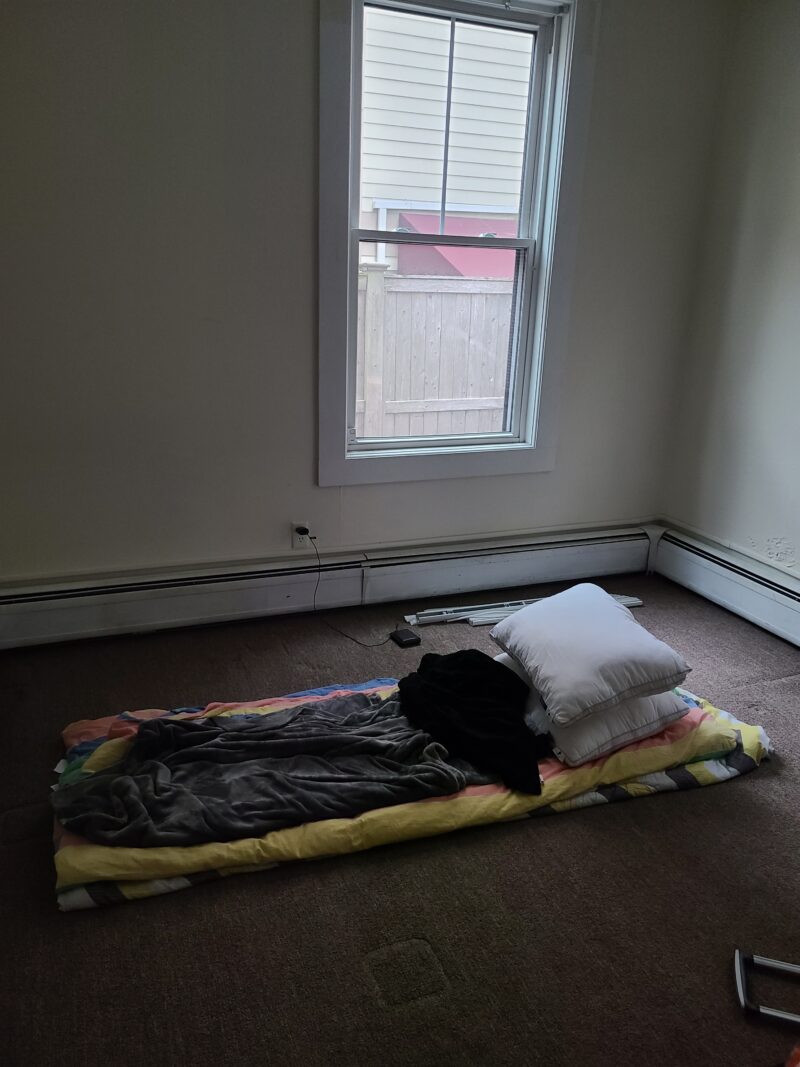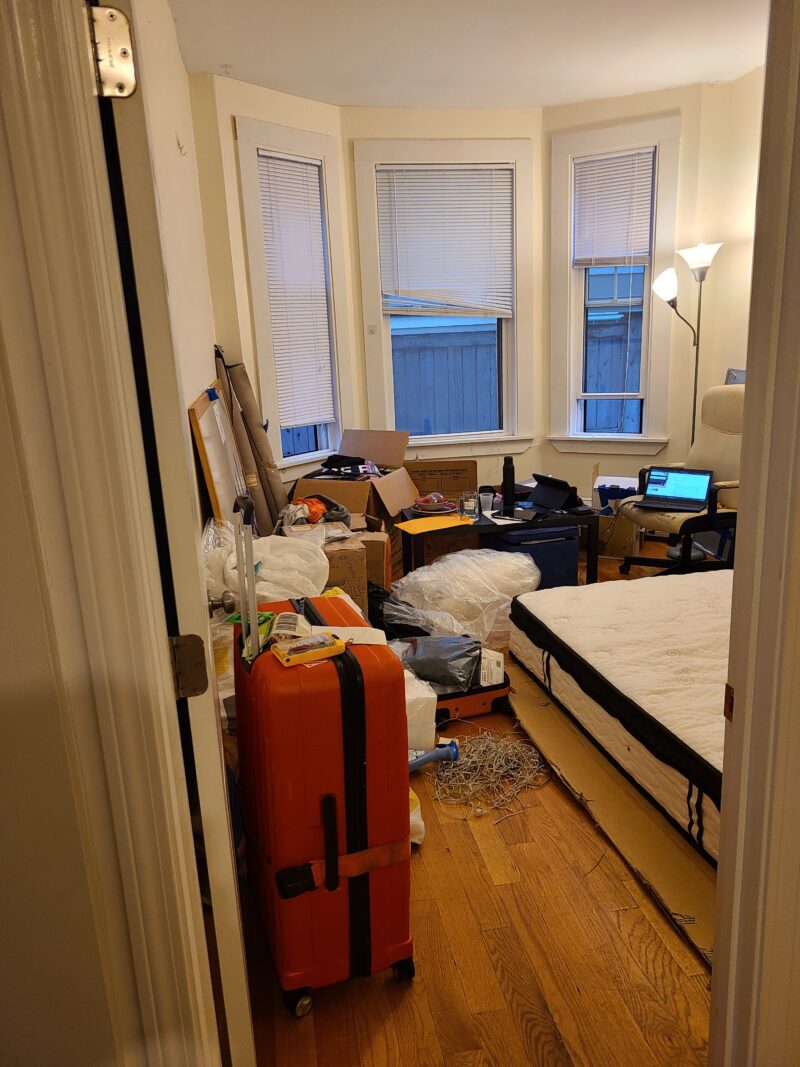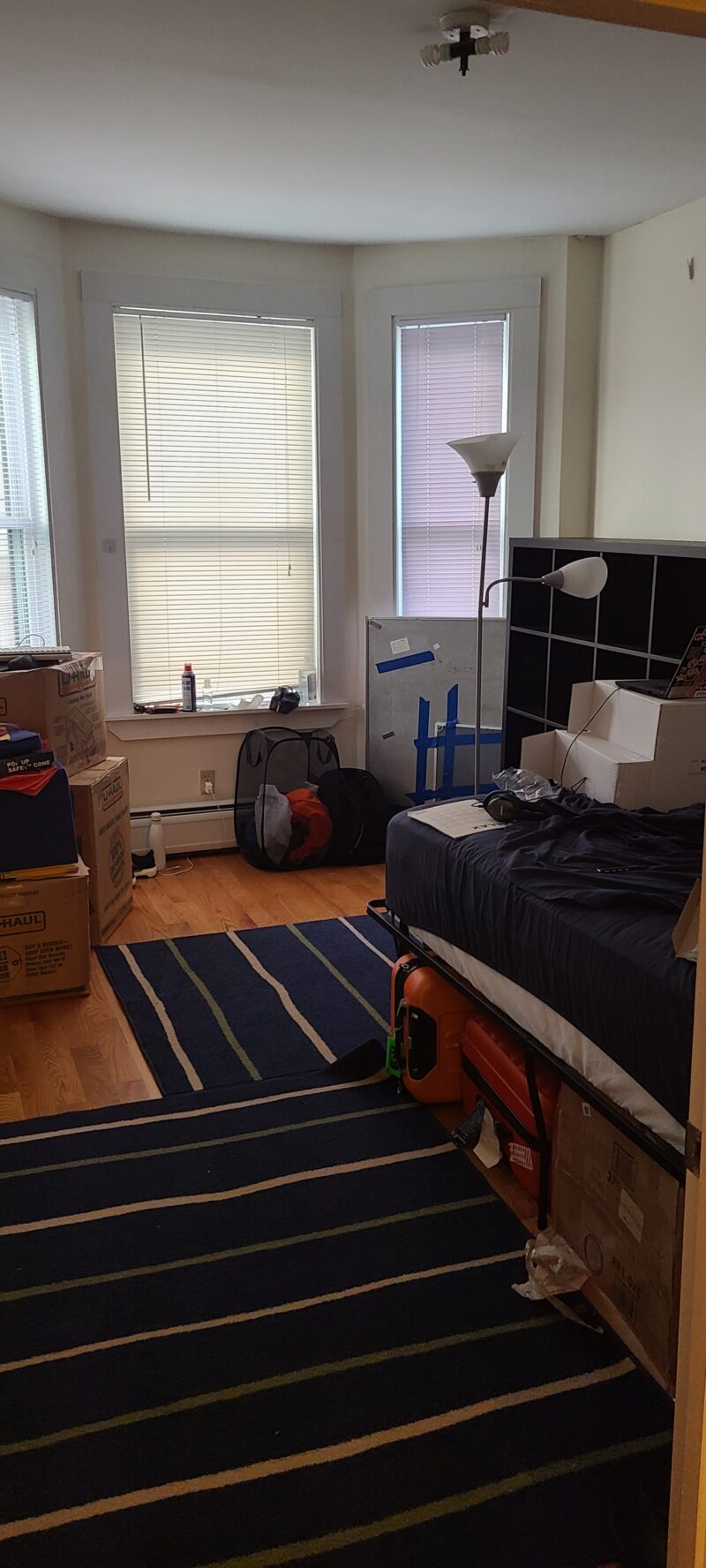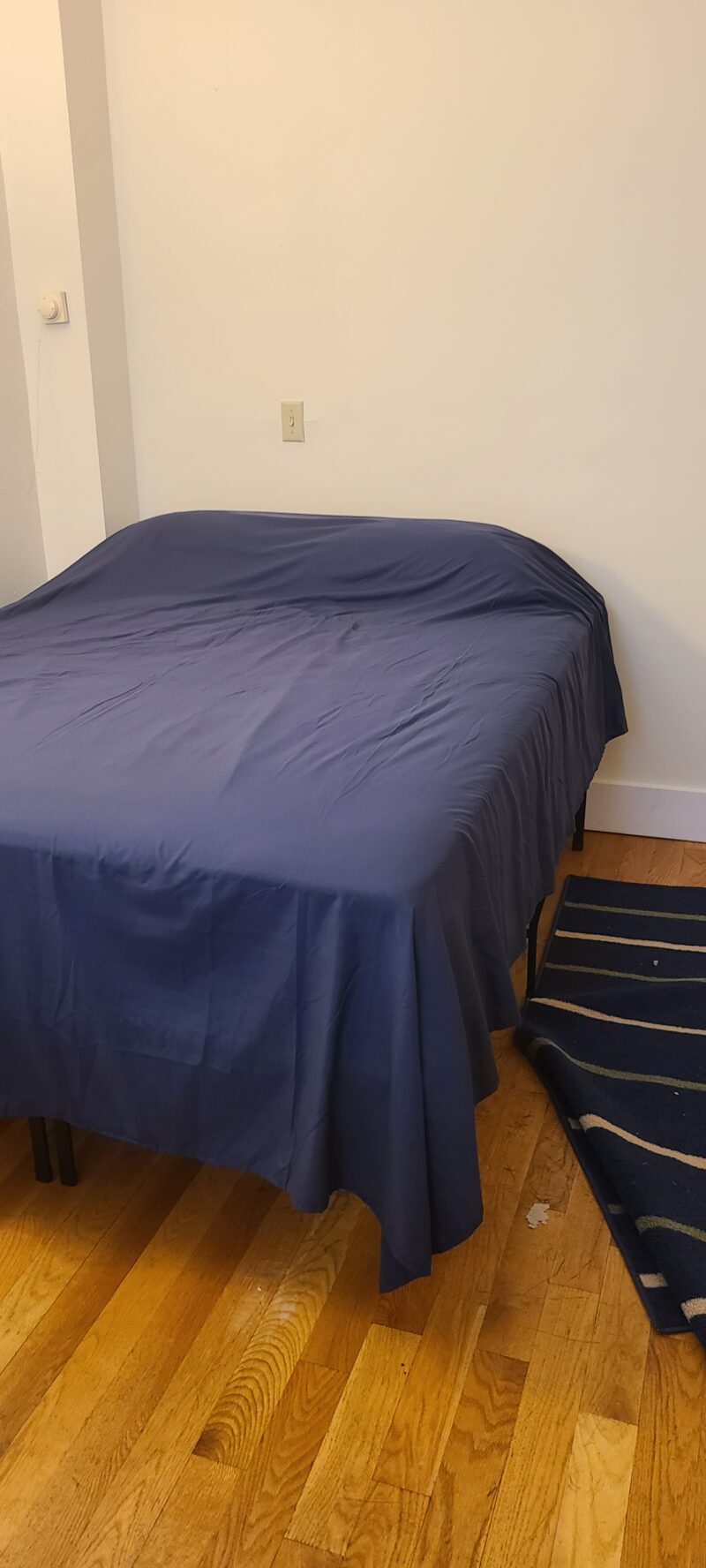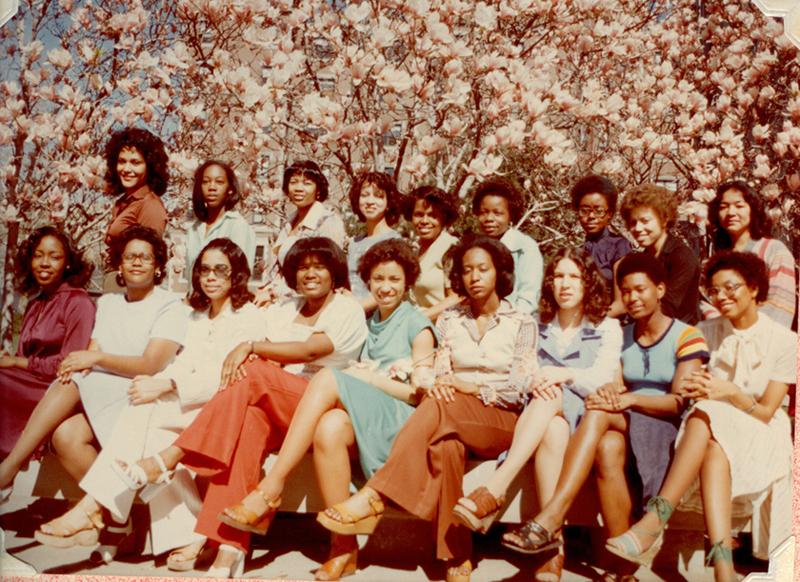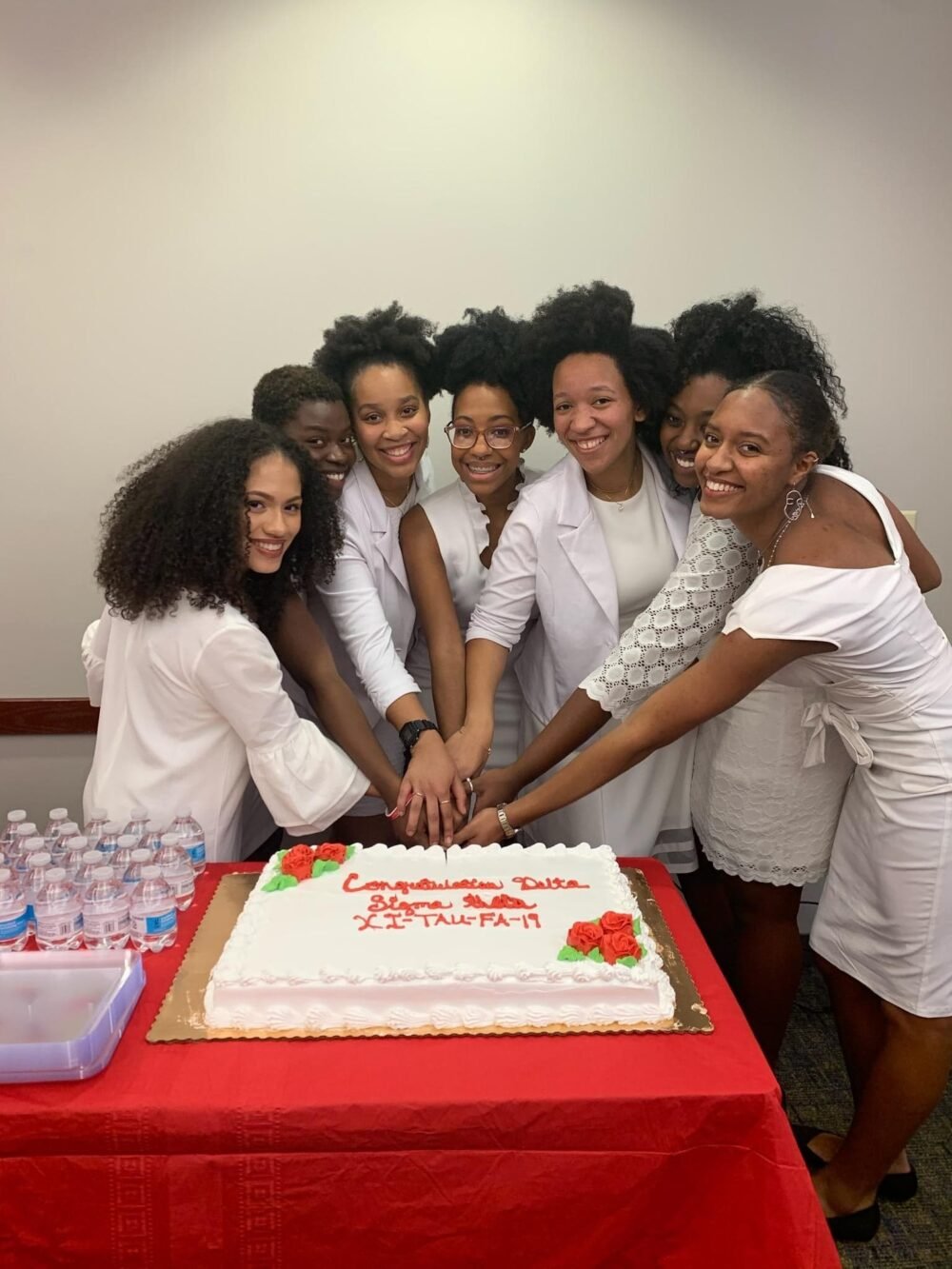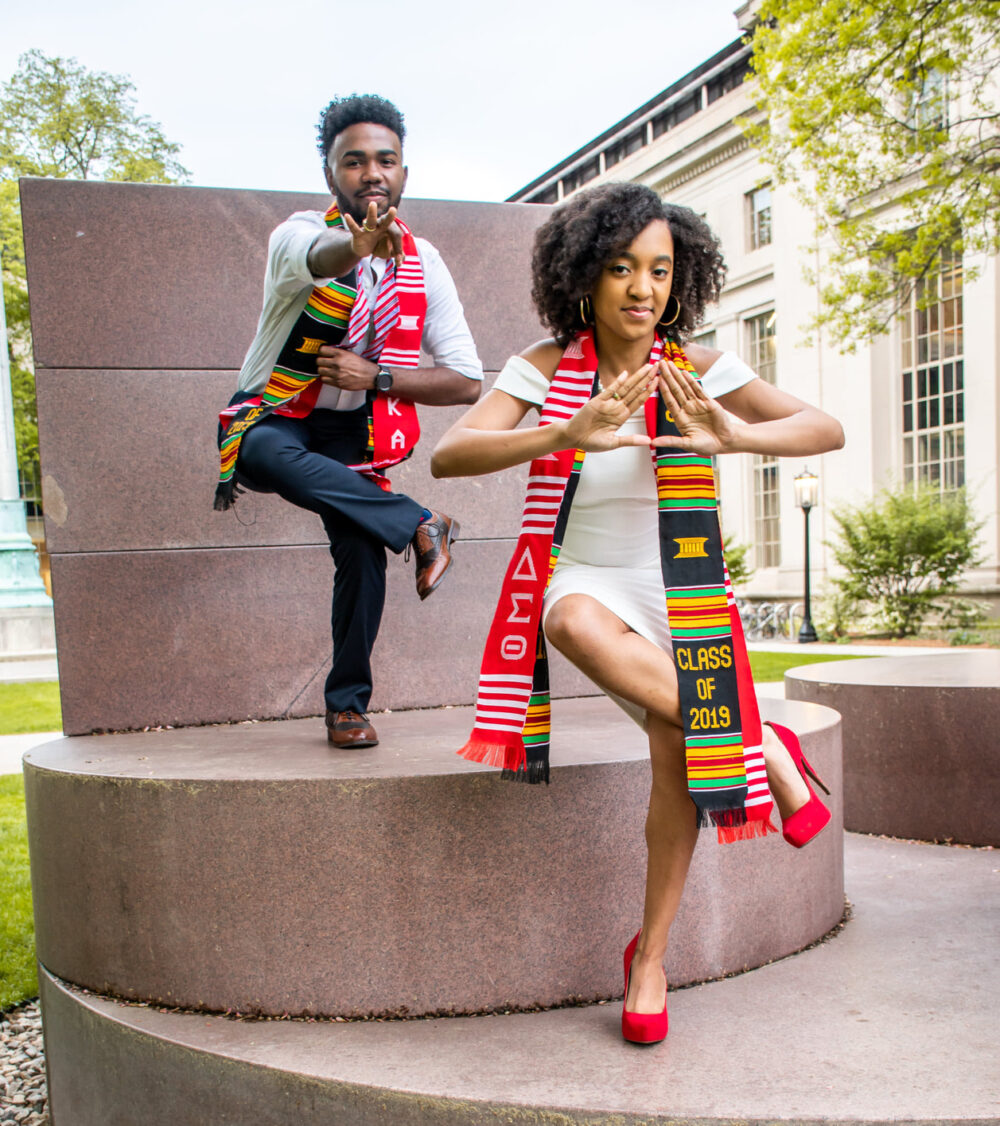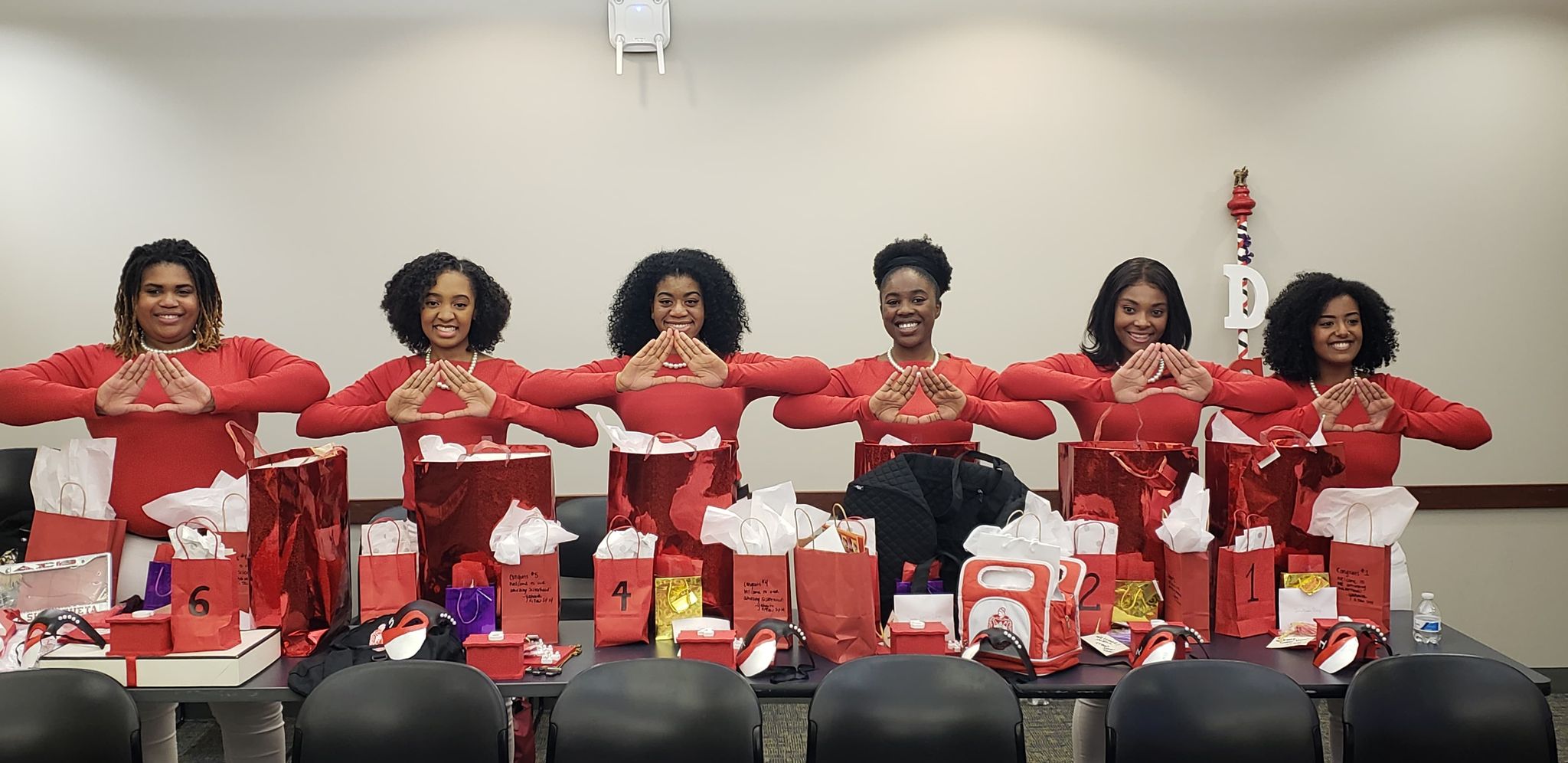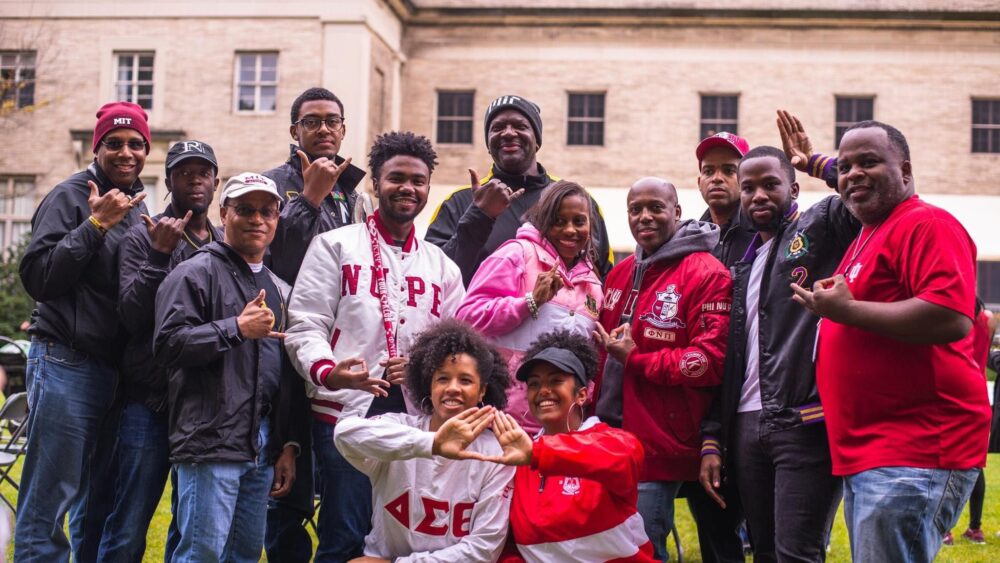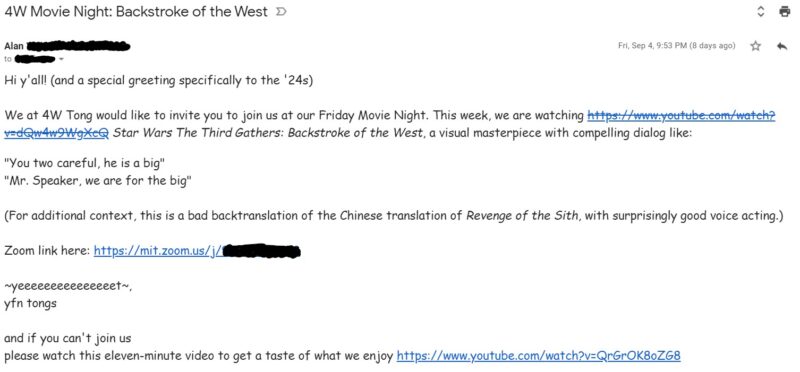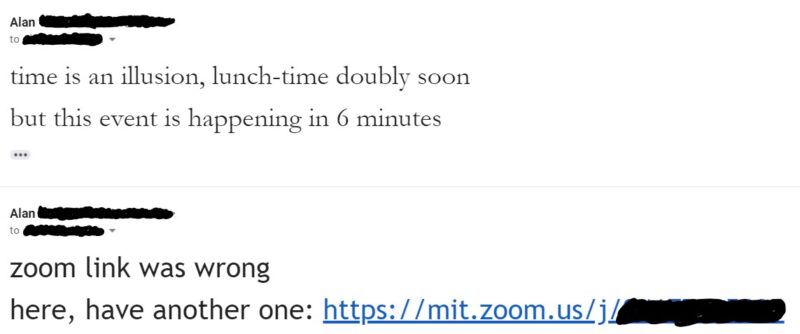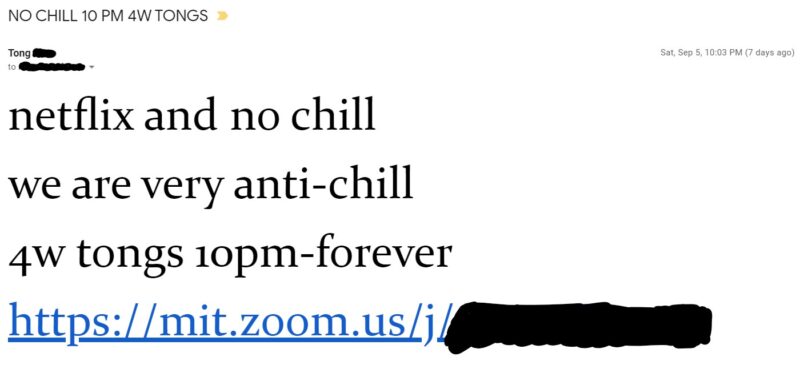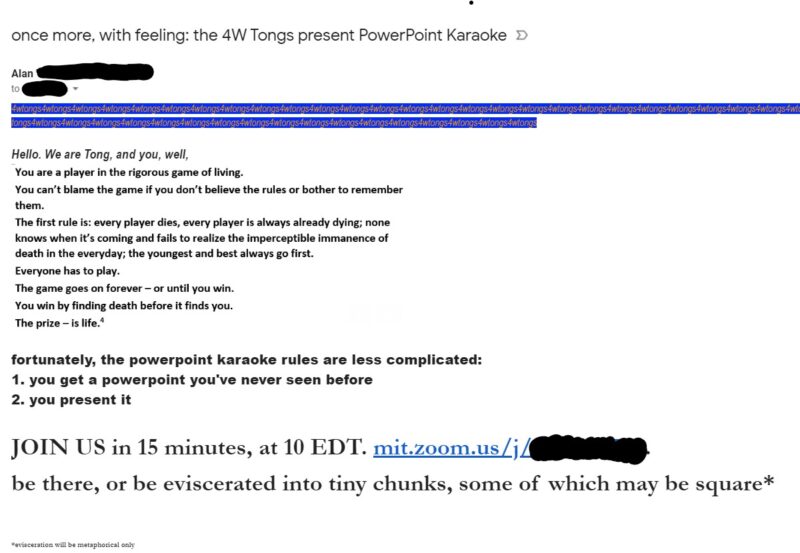Partitioning the Boston-Cambridge line, the Charles River passes alongside many of Boston’s universities and colleges: MIT, Harvard, and Boston University, to name a few. To get from Cambridge to
Boston proper,01
an important distinction is between the greater boston area and boston the city itself. the greater boston area includes cambridge, lowell, quincy, and even worcester and providence in rhode island. colloquially, this is sometimes referred to as boston. the city itself is often called boston proper
you have to walk across one of the city’s many bridges.
![a map of the cambridge-boston area, with the bridges highlighted and labeled in red]()
Because I’m a stubborn pedestrian, and because
Boston02
i’m including cambridge here but not the other cities, because i can. i love to be confusing
is a relatively small city, I have spent a lot of time walking along its streets and pathways. Whether it was a walk to Fenway’s House of Blues to catch a concert, a return home after major delays on the Red Line, or a stroll to Jamaica Plain on a summer day, I have had to cross the Charles at some point. Each of them are so different, both in
length03
the width of the charles varies wildly
and
usage,04
who is it used by, and where does it take you?
and they all have different memories associated with them because of this. As such, I have developed some Opinions and Feelings regarding these many bridges, and decided that the best way to show that is through writing flowery little paragraphs about them and the memories I’ve made on or crossing them, then assigning them a score based on nothing but my own feelings.
Before I begin, I think I have to provide some context: I’m currently studying to become a civil engineer, and my specific interest lies in structural engineering. I’ve taken many classes where we’ve pondered over the engineering behind bridges, through PSets or through small, scaled bridges and trusses made from Balsa wood. I’ve learned about types of bridges, had to design theoretical bridges, and will continue to do so for the rest of my MIT career, and maybe even further beyond. I even wrote about wanting to design bridges for my application to MIT:
Designing massive structures built to last, such as buildings and bridges, is something that really sparks my interest when I think about the future. The civil engineering department interests me, because I love thinking about how modern science interacts with our current environment and I also enjoy using math and science to construct new things.
It is safe to say that bridges represent a central tenet of my life, at least my education-related life. However, my opinion surrounding these bridges in Boston is much less analytical and much more emotional, so I will not be focusing on the technical aspect of these structures, outside of pointing out the length and what kind of bridge it is to flex my
civil engineering05
read: googling
chops.
Romanticizing the large, concrete and steel structures is farther up my alley than telling you what’s in them. I’m sure that somewhere in me is the power to analyze these bridges and tell you the approximate load capacity or the type of supports it has, but I find that far less interesting than telling you about the times I cried while watching a sunset walking across one. So, if you’re looking for that kind of in-depth look at Boston’s bridges, I’m sorry, but you’re in the wrong place.
One last note is that there are dozens and dozens of crossings that dot the Charles’ 80 mile span. I’m only going to focus on eight of these bridges, which are the ones I have the most experience with. Maybe one day, if I ever start to drive out here, or I spontaneously move to Newton or Watertown or Waltham, I’ll get to experience more of them. Alas, I don’t think that day will be coming soon, so here are my ratings so far, sorted from East to West:
Leonard P. Zakim Bunker Hill Bridge
The easternmost bridge on this list, this crossing is the only one on my list that does not cross into Cambridge, but rather, into Charlestown. In fact, I don’t think I’ve ever actually been on this bridge, and if I have, it must not have been very memorable.
![a photo of the Zakim Bridge from afar]()
just look at how far she is
However, this 442.2 meter
cable-stayed bridge06
a bridge that has one or more towers and is supported by cables jutting out from these towers
paints the city skyline from MIT and is ever present when you face the river (Cambridge-side) and turn left. It’s pretty hard to miss, with its large, concrete towers and the rows of cables that fan out and cut the sky with sharp, white lines. Its distinctive silhouette has even earned it a place on every Brass Rat I’ve seen, and a place on my list.
![a close up shot of my brass rat]()
it’s there on the very left of my ring
Rating: 5/10
Charles River Dam Bridge
Serving as a gateway between East Cambridge’s
Lechmere Station07
this is currently the last stop for most green line trains, though it currently being expanded into Somerville
and the Museum of Science, this
bascule bridge08
fancy word for drawbridge
is 25 meters long. On the exterior, this bridge is fairly unassuming and frankly doesn’t even look like much of a bridge outside of the fact that it crosses the river. The museum (which MIT students get free admission to!) is actually located on the dam part of dam bridge, and a highway runs through it.
So, the experience of crossing it is as follows: starting from Cambridge, you walk along the sidewalk. To your right lies the Museum of Science in red brick, not a huge set of buildings, but large enough that they obscure the view of water from that side. To your left is Route 28, and cars are constantly buzzing by you. Just beyond the highway is another sidewalk, and then the bridge ends and another begins—the Lechmere Viaduct, a concrete arch bridge that towers above the dam and carries the Green Line.
![a photo of the Lechmere Viaduct, currently under construction]()
there’s the viaduct, currently under construction
I think I’ve crossed this bridge less than five times in my life (excluding the one or two times I took the Green Line to the end, because that’s technically a separate bridge), with most of those occurrences taking place on a single day. On this day, my six coworkers and I were supposed to go to the Museum of Science.
![a photo of the Charles River Dam Bridge and the Museum of Science]()
I rode the MBTA’s 69 bus from my home to Lechmere Station, not realizing just how quickly it would drive down Cambridge Street. I crossed the bridge once from Lechmere and stepped foot in front of the museum, only to realize that I’d arrived way too early and no one else had shown up yet. To kill time, I walked across the dam once again and stumbled into the Cambridgeside Galleria Mall, grabbed an iced chai from Starbucks, and at this my mental map of Cambridge began to come together.
You see, I’ve been to this mall before, usually via the shuttle bus that picks up from Kendall Square or by walking from MIT’s
east campus,09
the actual eastern campus, not the dorm
but I had never really conceptualized it as part of the greater Cambridge picture. I mapped the path from my apartment, from Hampshire Street to Cambridge Street, all the way down until you reach where the highway joins the street, the mall to your right and the station to your left, the bridge across the road. In that moment, as I sipped my obscenely sugary drink that I’m certain doesn’t even have real tea, the in-betweens began to fill out, and I felt the satisfaction I felt when clearing out a section of a map in a video game.
Rating: 5/10
Longfellow Bridge
If you’ve ever ridden on the Red Line train downtown from Kendall Square, you have seen the beauty that is this bridge. This 650.7 meter long
steel arch bridge10
kind of self explanatory. there’s an arch below that supports the structure, made of steel
is also a triple whammy, rail-road bridge, which means that it is simultaneously a bridge for pedestrians, cars, and the Boston T. For my first two years at MIT, this bridge had been partially closed to construction, and for a long time all you could see as you rode the Red Line were stretches of unfinished roads, hastily put up chain link fences, and construction workers. It was gloomy, but nothing I hadn’t come to expect, what with Kendall Square’s near constant state of construction and reconstruction in all my years here.
![a photo of the Longfellow Bridge, from afar]()
The construction finished in 2018, but even in a state of disarray the Longfellow had wormed its way into my heart. It wasn’t until I moved off campus, started working, and had a reason to go into Boston every day, when I began to fully appreciate this crossing—its ornate metal railings painted black, the four stone towers that fill me with a curiosity to go inside, the sound of the train rushing by and the clear view of all the standing passengers inside. Because of the river’s bend, the bridge is angled just right to capture the view of Boston’s skyline, Citgo sign and Prudential Center and Hancock tower and all. At night, all of the city’s lights, its vibrant blues and reds, illuminate the surface of the water. And it takes all of my might to continue holding onto the guardrail and not plunge in as I peer over the edge, taking in the city, taking in the colors, taking in the feeling of wonder for this place I’ve called home for so long.
I spent a lot of time crossing this bridge in my life, mostly on the train. I’ve spent collective hours, maybe even days, riding from Harvard Square down to MGH, from Kendall Square to Downtown Crossing or South Station, from Central all the way down to Mattapan, and all the same in reverse. In my seat, I crane my neck back as we cross, watching the water or the sky, whether it’s day or night. When it’s rush hour, I work my gaze between the spaces of other people’s bodies and watch as I grip on the pole and hope I don’t fall. There are faces absorbed in their phones, people talking to their friends, commuters engaged in a book, and even though I’ve seen it a thousand times already, I never tire of that view. It reminds me of home, my old home, of being a child and wanting to look out the windows of the Bronx’s elevated subways to watch the buildings rush by me, but being too afraid that pressing my body against the glass would tip the train over. I don’t think I’m afraid anymore, and the Red Line runs adjacent to a road rather than above it like the 4 train, but I still keep my watching from a distance.
![a photo of the Longfellow Bridge, with the T passing through]()
check out those crossing red line trains
This bridge captures both excitement and comfort, and wraps it into a structure made of steel and concrete. Watching the buildings rise up before me and the Charles below fills me with fresh giddiness that I still can’t shake off. At the same time, in many ways, it is the sign I am looking for when I feel like I need to return home, to my new home. So many times I have looked at Boston from the inside of a train car, suitcase in hand as I returned to Cambridge from break.
One moment that stands out to me happened back in 2017, in the middle of my first internship after leaving MIT. I remember waiting at the MGH station around 5:00 PM, waiting for the train to come in so I could go home along with hundreds of other people. After ages of waiting and hearing about delays on the loudspeaker, I’d decided just to walk home, forgetting about the $2.40 I’d spent. As I walked across the Longfellow, breeze gently swaying though my hair (which had grown out far beyond my comfort), the sun began to set over Boston. I’d been having a rough couple of weeks, of months, really, and something inside me seemed to crack open as the pink and orange hues washed over the water. I stopped for a second, taking in the sight, music still blasting in my ears, and for the first time in ages I felt grateful to be alive, even if just for those ten minutes. I’ve seen a dozen other sunsets from this bridge, and I still maintain that it has the best view of them.
Rating: 10/10
Harvard Bridge
This 659.9 meter
girder bridge11
a simple bridge supported blow by a series of girders, a type of beam
is the longest bridge across the entire Charles River. In my opinion, it is poorly named, since it is technically miles away from Harvard and steps away from MIT. This is explained by the fact that it’s actually named after Harvard’s namesake, John Harvard, rather than the university itself, but that doesn’t make it any less confusing for Boston newcomers. Most of the time, I refer to it simply as the Mass. Ave Bridge, named for the busy street that both bisects MIT’s campus, and runs directly through the bridge into Boston.
![a photo of the Harvard Bridge]()
The most memorable thing about the Harvard Bridge is the smoot, the measurement that lines the sidewalks in vibrant red, yellow, and purple paint and cartoonish lettering. The story behind the smoot is as follows: in 1958, Oliver Smoot, a fledgeling fraternity pledge, lied down along the length of the entire bridge and let his future brothers mark the spot, thus dividing the bridge into Oliver
Smoot sized segments.12
plus or minus an ear
For context, his height is roughly 5’-7”. To this day, the marks are still there, repainted yearly by members of his fraternity.
As the closest bridge to MIT’s campus, this is also naturally the one I have the most experience with. I have hundreds of stories that formed while walking across it, from gripping my baseball cap to my head on a really windy day on my way to the Esplanade, to whizzing by pedestrians on the SafeRide shuttle bus on my way back from a frat party, to running across on a bitter cold night after a long walk because all I can think of are MIT’s open bathrooms waiting on the other side. The first time I ever walked along it was during my CPW, one night at 3am after a series of wacky MIT-like hijinks. One of the other prefrosh I had met was being hosted in a fraternity, while the rest of our temporary friend group and I were situated nicely along Dorm Row, and we thought it best to walk him across the bridge so he wouldn’t have to do it alone. I remember the chill as we walked, the excitement of new connections, the curiosity as I eyed the markings on the ground. Halfway to hell, it said, with an arrow pointing back to campus. At the time, the idea of MIT being Hell seemed far away, and all I could see was joy and thrill and a new beginning for myself. It still made me chuckle, though.
!["Halfway to Hell" painted on the Harvard Bridge]()
Thinking of it now, this bridge is pretty emblematic of my MIT experience. Every time I need to cross from this point, I find myself staring at the end and wondering just when I can even reach it. I count the smoots as I walk, always forgetting just how many there are total and scaring myself into thinking that I haven’t made it very far at all, regardless of what the numbers say. For some reason, it feels so much longer than it is, especially on cold or dark days, the water below endless and murky and dark. Sometimes the wind blows too hard and the guard rail feels too short, and I feel an irrational sort of fear that I’ll be thrown over the edge and have nothing but the cold, dirty water to help. It’s times like this when I’ll bite my lip, zip up my jacket, clutch the straps of my backpack close to my chest, and stray away from the edge. To my luck, I haven’t fallen in yet.
Rating: 7/10
Boston University Bridge (+ Grand Junction Railroad Bridge)
More aptly named than the last bridge, the Boston University Bridge (commonly called the B.U. Bridge) actually is actually next to the aforementioned university. When I was staying with my girlfriend in her Cambridgeport apartment at the end of the summer, this 280.1 meter long,
through arch bridge13
similar to an arch bridge, except the arch begins below the deck and the top ends above, effectively, going <em>through</em> it
was the closest to me. Since I’ve been back in Cambridge, I’ve walked this twice, on long, leisurely strolls around when I have nothing better to do.
This bridge always reminds me of fried chicken and live music. When I was still a young sophomore, full of free time and spontaneity, my suitemates and I would occasionally walk to Raising Cane’s, a chain fried chicken restaurant located near B.U, and stuff our faces. Now, as a born-and-raised Northeastern yankee, I’m no fried chicken expert, but I think Raising Cane’s has some banging chicken. We’d walk down the river from our dorm, passing by the Mass Ave. Bridge, and cross here because we were convinced that it made the walk shorter. I’d eat chicken and rave about their signature sauce, which I’d convinced myself was the best, even though my suitemate would tell us that it was just a spin on thousand island dressing. Pillowy, buttery Texas toast and greasy fries would accompany the meals, and maybe it was just our youth, but I was always able to get it all down without feeling sick. And then we’d walk back, lethargic from the massive amounts of bready and/or breaded food, and the painted grey steel truss of the bridge would be there to wave us off.
![a photo of the Boston University Bridge]()
The live music association comes from the Paradise Rock Club, which is a fairly small concert venue right next to the Raising Cane’s. I went to see
The Internet14
an r&b group, not the collective world wide web
there just days after my 21st birthday in 2018. I remember the line stretching across the block, but one hidden secret of this venue is that you can usually enter a show early if you’re 21 and enter through the bar. And that I did, filled with a thrill of being older and part of some exclusive club, proudly showing off my newly minted Adult ID. Inside, I bought myself a vodka soda with a splash of cranberry, and learned bar-tipping etiquette as I did. The concert was great, even though the excitement of legal drinking faded away as I realized I’d have to spend $9 for each drink. My friends and I walked back to Cambridge when the show was over, crossing over the B.U. Bridge as we went, and I felt simultaneously tipsy from the drinks, and anxious about surviving the hour-long bathroom-less walk. With a cool night breeze and good company, I did survive.
There is also another bridge located almost directly under the B.U. Bridge, but it’s only a rail bridge, so pedestrians or cars can’t get on it. Given all the graffiti that coats almost the entire surface of its structure, clearly some people more daring than I have traversed this. However, I’m a very cautious person generally, so I just stick to looking at it when I’m nearby.
![a photo of the railway underneath the Boston University Bridge]()
Rating: 8/10
River Street Bridge
The River Street Bridge, named for Cambridge’s River Street which runs through it, is a 64 meter long
concrete arch bridge.15
same as the longfellow, but made of concrete
It leads to Allston, the land of college students and recent grads, and weirdly, some of Harvard’s campus. The bridge is fine by design, looks nice if a bit basic from a distance, but it is a nightmare to traverse, especially as a pedestrian. I think I may have a bit of an unfair vendetta against this bridge, because most of my experience walking across it has been in miserable conditions, either in the sweltering heat of summers past or in stormy weather.
![a photo of the River Street Bridge, from afar]()
I hate this bridge, I really do. It’s a glorified road with none of the luster that a bridge typically gives, all cars and exhaust. Getting onto it from the Boston side is like playing a game of Russian Roulette where the bullets loaded are will I wait 20 minutes to cross the road? or will I risk my life to cross now? I once spent ages waiting, watching the street lights turn green and red and green and red, no rhyme or reason for why my light wasn’t coming on. I’ve almost been hit by a car here, the closest I’ve ever gotten to death or certain injury. There’s an absurd amount of lanes of traffic that join with it, and it’s just plain awful to look at from the bridge deck.
![a photo of the River Street Bridge]()
My fondest memory of it is probably the time I walked across it in the pouring rain, soaking all of my clothes and the soles of my shoes, so that I could spontaneously get Korean hot tofu soup with my girlfriend. The soup was great, warm and spicy and filling, and as always we made sure to finish all of the little side dishes along with our meal. But, pressing my yellow rain jacket to my chest and trying to not become part of a hit and run was definitely the worst part of that whole memory.
Rating: 1/10
Western Avenue Bridge
I think I’ve walked on this bridge twice in my life, and crossed via bus or car far more often. I don’t pay enough attention to the outside when I’m in vehicles, though, so it’s hard to count that. Crossing from the Cambridge-side, this 85.3 meter concrete arch bridge also leads into Allston, and to the Harvard Business School.
Most importantly, though, if you follow the road just a bit farther, you will reach Allston’s very own Trader Joe’s, which is both larger than the Cambridge location and has its own
liquor store.16
and trader joe’s branded alcohol is both good and cheap
Also, in pre-COVID times, this location, because of its coveted liquor license, would give out free wine samples, usually with an accompanied cheese and cracker. A true delight for a Saturday afternoon shop. The Trader Joe’s is not on the bridge, but I feel positively about it because of their association, because I’ve only ever walked on this bridge to get to this Trader Joe’s. Otherwise, this bridge is mostly irrelevant to me.
![a photo of the Western Avenue Bridge, from afar]()
Rating: 4/10
John W. Weeks Bridge
The third concrete arch bridge on this list, the John W. Weeks Bridge is unique from the others because it is only a footbridge. Unfortunately, I can’t find the exact length of this bridge online, but I believe it’s around 80 meters. To be completely honest, I didn’t even realize it had a name, and I’ve been calling it the Harvard Footbridge for years. Everyone usually knows what I’m talking about.
![a photo of the John W. Weeks bridge, from afar]()
so photogenic
I love footbridges. Sure, I can manage sharing a road with cars, but I find myself a lot more at peace surrounded by like-minded pedestrians, and maybe the occasional new biker or skateboarder. It is such a classic footbridge, with waist-high stone railings you can sit on, and the subtle arch on the deck that makes you feel as if you’re crossing into a new fantasyland in the woods. It is long enough that you feel like you’re still going somewhere, but short enough that you don’t tire or hope for the end when you’ve just started.
I’ve experienced what I believe is the full range of human emotions on this bridge—sadness and despair, hopelessness, anger, euphoria, hope, regret, and many more. I looked upon the Charles with tears in my eyes and wanted to jump in, to feel the cold water rush up against my body, and drift away. I’ve looked up at the sky and felt wonder and awe at the brilliant shade of blue I found.
![a photo of the John W. Weeks Bridge]()
One Fourth of July, when I was still living in Harvard Square, I went to this bridge with my roommates to catch the fireworks. It was crowded, especially at the center, and we all honed our eyes to the bend of the river as lights went off. I couldn’t see a single firework that night, all of them obscured by the tall buildings between us and the Mass Ave Bridge, which is by where the fireworks are usually shot. We heard the booms and crashes, and the night sky still illuminated in bright colors, but without the bright streaks, the sky looked like a room flickering due to a faulty lamp. After about half an hour, my roommates and I went home, and for the first time in my life, I went to bed as the fireworks continued without me watching.
Rating: 9/10
And there you have it, my (not so) comprehensive ratings. If my writing didn’t make it clear, I feel pretty strongly about the local bridges, though maybe not in the way that would be most beneficial for my major or career. One could argue that the opinions of the user matter a lot more than the calculations of the engineer, and if that is true, then I think that I’ll make a great bridge designer one day. For now, I’ll just keep to the storytelling.














 and I was home. Not everything was the same, of course—the beanbags and squishables in the main lounge were gone, as were the chairs at the tables—but there was enough to remind me of everything I had missed about this place. The memories of late nights spent doing problem sets in the main lounge, of study breaks and MarioKart tournaments and everything in between, flooded back to me. Home was here, not because the place had meaning on its own, but because of the memories that had filled it, memories of the community which had sustained me through my freshman year.
and I was home. Not everything was the same, of course—the beanbags and squishables in the main lounge were gone, as were the chairs at the tables—but there was enough to remind me of everything I had missed about this place. The memories of late nights spent doing problem sets in the main lounge, of study breaks and MarioKart tournaments and everything in between, flooded back to me. Home was here, not because the place had meaning on its own, but because of the memories that had filled it, memories of the community which had sustained me through my freshman year.
 .
.





